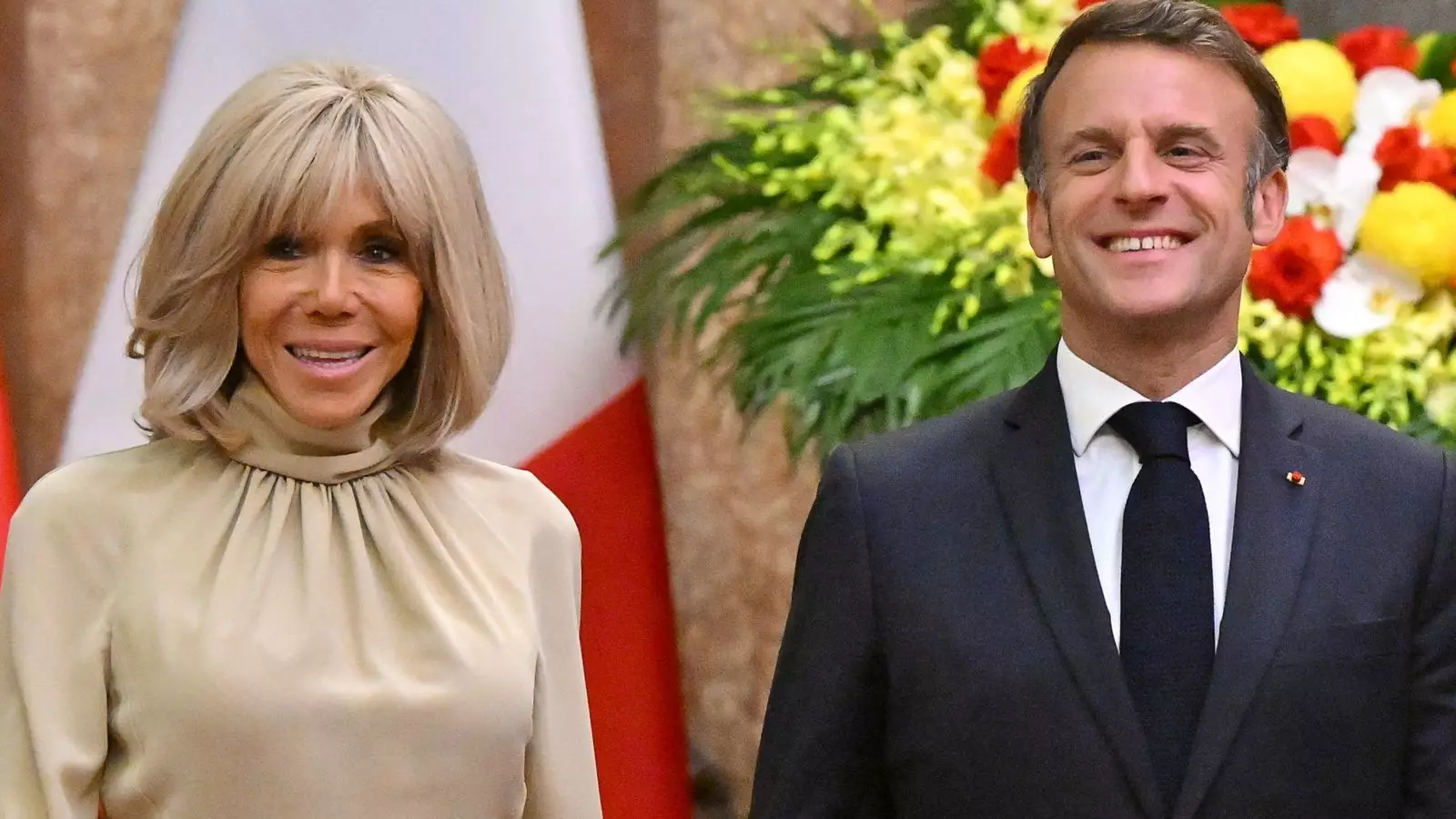The upcoming state visit of French President Emmanuel Macron signifies more than just a diplomatic trip; it heralds a subtle yet strategic shift in how Britain now approaches international relations. Traditionally, state visits in the UK have been centered around Buckingham Palace, a symbol of regal continuity and grandeur. However, this time, the choice of Windsor Castle as the focal point disrupts convention, signaling a nuanced message: the monarchy is evolving, embracing more down-to-earth diplomacy while still maintaining an air of regal dignity.
The personal involvement of the Prince and Princess of Wales—standing at RAF Northolt to personally meet Macron—marks a departure from the usual formalities. It’s a deliberate move, emphasizing personal connections over rote protocol. These decisions reflect a broader desire to humanize diplomacy, making it more accessible and less detached from the common people. But is this truly progressive, or does it risk diluting the gravitas of statecraft?
The Power of Personal Touches in Modern Diplomacy
When Macron and his wife are greeted by the King and Queen on a specially constructed royal dais amidst Windsor’s historic surroundings, it’s clear that the monarchy is leveraging its unique position to foster personal rapport. The subsequent carriage procession along the Long Walk is more than ceremony; it is a symbolic act designed to forge emotional bonds—bonds that can sometimes outweigh the formalities of policy and politics.
While some may argue that these touches foster genuine warmth, others might see them as superficial gestures that mask deeper underlying diplomatic complexities. The visit’s itinerary includes viewing historic artifacts, like the Charabanc carriage gifted to Queen Victoria—an act that evokes nostalgia and continuity. Yet, beneath this romantic veneer lies a delicate dance of diplomacy, with each gesture carefully calibrated to project strength, stability, and an openness to collaboration.
A Calculated Display of Soft Power
State visits serve as cultural and diplomatic displays; they are Britain’s soft power in action. The decision to hold the grand banquet in Windsor rather than at Buckingham Palace, and the inclusion of personal visits to Queen Elizabeth II’s tomb, reflect a strategic recalibration. It underlines an intent to bolster France’s relationship with the UK while respecting how monarchy’s image needs to adapt in modern times.
President Macron’s itinerary, including a speech to Parliament and informal visits with opposition leaders, suggests an attempt to craft a comprehensive narrative of partnership. It’s not solely about symbolic gestures but also about bringing tangible benefits—agreements, collaborations, and goodwill—that underscore Britain’s diplomatic authenticity. The tour of Windsor’s gardens and focus on nature conservation signals an awareness of global issues, subtly positioning Britain as a steward of environmental progress—a stance that can resonate both domestically and internationally.
A Reflection of Britain’s Diplomatic Poise and Vulnerability
Amid these carefully orchestrated diplomatic affairs lies an undercurrent of cautious optimism mixed with vulnerability. The choice of Windsor, given ongoing refurbishment at Buckingham Palace, might seem practical, but it’s also a reminder of the monarchy’s fragile state—politically, financially, and historically. By personalizing events and involving members of the royal family in meaningful ways, Britain aims to project stability, yet it also exposes its internal debates about tradition and modernization.
The Macron visit indicates that the UK is attempting to find equilibrium—a delicate balance where the monarchy’s symbolic power is preserved while its relevance is reinvented. While these performances—viewing rare artifacts, participating in intimate ceremonies—are visually compelling, they also spark questions about how much of this is genuine diplomacy and how much is performative spectacle designed to impress.
My Critical Perspective
From a center-leaning liberal viewpoint, this event exemplifies an admirable effort to humanize and modernize diplomatic relations, but it also reveals inherent tensions. The monarchy’s evolving role is both a strength and a vulnerability; it’s commendable that these personal touches aim to foster genuine goodwill. However, the risk lies in conflating spectacle with substance. Diplomatic progress should ultimately be measured by tangible outcomes—trade agreements, policy alignments, and international cooperation—not just shared history and ceremonial gestures.
Moreover, the emphasis on Windsor’s intimacy and historic artifacts could be perceived as a nostalgic retreat into tradition—a safe territory that distracts from pressing contemporary issues like climate change, social inequality, and international instability. While these cultural tokens evoke pride and continuity, they should not replace ambitious policy visions.
In that sense, Britain’s diplomatic strategy must walk a fine line. Celebrating tradition is essential, but it should not come at the expense of addressing the world’s urgent problems. The Macrons’ visit, with its mix of pomp and personal engagement, provides a snapshot of Britain attempting to redefine its diplomatic paradigm—more human, more relational, yet still grappling with the core challenges of relevance and influence.

